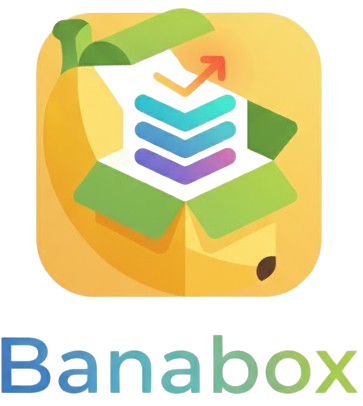If you are into self-publishing with Amazon KDP, you already know one thing: it’s not just about writing a book. 📚 It’s also about research. Finding the right niche, keywords, and categories is often more important than the actual book idea itself. But here’s the good part—you don’t always need to pay for expensive tools. There are many free tools that can help you do amazing research for Amazon KDP.
In this article, I’m going to share some of the best free tools that you can start using today. I’ll also explain how they can help you, when to use them, and why they matter.
Why research matters in KDP
Publishing without research is like throwing darts in the dark. You might hit something, but most of the time you’ll miss. Research shows you what people are already looking for, what keywords are trending, and how competitive a niche is. This way, you spend your energy creating books that have a higher chance of selling instead of wasting time.
Amazon Search Bar (Autocomplete)
Yes, the Amazon search bar itself is a powerful free tool. When you start typing a word like “coloring book” or “notebook,” Amazon automatically suggests long-tail keywords like “coloring book for kids ages 4-8” or “lined notebook aesthetic.”
These suggestions come directly from what real buyers are typing. That’s free gold. ✨
How to use it:
-
Type your main keyword in Amazon’s search bar.
-
Write down the autocomplete suggestions.
-
Check which ones are less saturated and more specific.
Google Trends
Trends matter. What’s hot today may be gone tomorrow. Google Trends shows you whether a keyword is gaining or losing popularity. For example, “gratitude journal” may spike in November and December due to New Year resolutions.
This tool helps you avoid dead niches and focus on rising ones. It’s especially useful for seasonal book planning.
| Keyword | Rising/Declining | Best Time |
|---|---|---|
| Gratitude Journal | Rising | Nov-Dec |
| Halloween Coloring | Seasonal | Sep-Oct |
| AI Prompts | Rising | Ongoing |
Amazon Best Seller Rank (BSR) Checker
Understanding how well a book sells can be tricky. But there are free BSR checkers available online (many blogs and sites offer them). The lower the BSR, the better the sales.
If you compare several books in a niche and see that most have a BSR below 100,000, that means strong sales. But if they’re sitting at 2,000,000+, then sales are slow.
This can save you from entering dead markets. 🚫
Publisher Rocket Free Alternatives
Publisher Rocket is a paid tool, but there are free alternatives that can still give you keyword insights. One is Book Bolt’s free keyword tool, another is using Ahrefs Free Keyword Generator. They might not be as detailed as Rocket, but they still provide keyword difficulty and volume ideas.
Keyword.io
Keyword.io is a free keyword research tool. You just enter a term like “journal” or “activity book,” and it will pull up hundreds of related keywords. It’s simple, easy, and saves hours of brainstorming.
Helium 10 (Free Plan)
Helium 10 is a popular tool in the Amazon FBA community, but its free plan can also help KDP authors. With the free version, you can use the Magnet keyword tool and Cerebro reverse ASIN lookup (limited searches per day). This helps you see what keywords competing books are ranking for.
AMZ Suggestion Expander (Chrome Extension)
This free Chrome extension expands Amazon’s autocomplete suggestions. Instead of only showing a few, it gives you dozens of related search terms. It’s perfect when you’re looking for long-tail keyword opportunities.
For example, typing “planner” might also give you:
-
planner for students
-
planner for moms
-
planner with stickers
-
minimalist planner
This saves time and widens your keyword pool.

Book Bolt (Free Interior Generator)
While Book Bolt is paid, it does offer some free features like the interior generator. You can download lined paper, dot grid, and other interiors for free. This is helpful if you’re creating low-content books like journals or sketchbooks.
KDP Categories Browser
Amazon has thousands of categories, and choosing the right one is a big deal. Some categories are too competitive, while others are easier to rank in. There are free KDP category browsers online (like Kindlepreneur’s tool) where you can search categories before publishing.
Google Keyword Planner
Don’t ignore Google’s own tool. With Google Keyword Planner, you can find keyword ideas and their approximate search volumes. While it’s meant for Google ads, it still shows buyer intent keywords that you can apply in KDP niches.
Ubersuggest (Free Plan)
Ubersuggest by Neil Patel offers a free plan with limited searches per day. It gives you keyword ideas, traffic, and competition data. Pairing it with Amazon search can be powerful.
KDP Rocket Alternatives Spreadsheet
Some smart publishers even make their own research spreadsheets. You can combine data from the free tools above—keywords, trends, categories, and BSRs—and build your own analysis sheet. This way, you create a system that works for you without paying monthly fees.
A Quick Comparison Table
| Tool | Best For | Free? |
|---|---|---|
| Amazon Search Bar | Real buyer keywords | ✅ |
| Google Trends | Seasonal/Niche trends | ✅ |
| Keyword.io | Keyword expansion | ✅ |
| Helium 10 (Free) | Competitor keyword spying | ✅ (limited) |
| AMZ Suggestion Expander | Autocomplete expansion | ✅ |
| Book Bolt Interiors | Low-content interiors | ✅ |
| BSR Checker | Sales estimate | ✅ |
| KDP Category Finder | Category research | ✅ |
| Google Keyword Planner | Search volume ideas | ✅ |
| Ubersuggest Free | SEO + keyword metrics | ✅ |
Some extra tips
-
Always cross-check keywords from more than one tool.
-
Look for niches with demand (good BSR) but not too much competition.
-
Test seasonal niches early before they peak.
-
Save time by keeping a keyword bank (Excel or Google Sheets).
Final Thoughts
Amazon KDP research doesn’t have to be expensive. By using the free tools mentioned here, you can build a solid publishing strategy without paying a dime. The key is consistency—do the research before publishing, and you’ll avoid wasting effort on books no one is looking for.
Remember, sometimes the simplest tools like Amazon’s own search bar can give you more powerful insights than fancy software. The goal isn’t just to publish but to publish smart. 🚀




